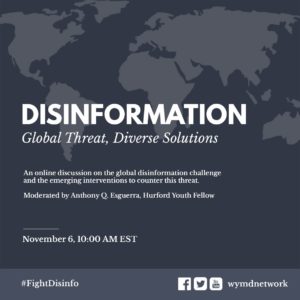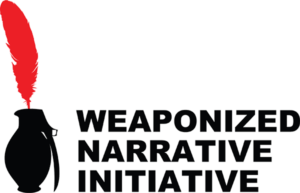 Democracies are vulnerable to disinformation campaigns that “flood” public debate and disrupt shared understandings of actors and coalitions, in ways that autocracies are not, research suggests.
Democracies are vulnerable to disinformation campaigns that “flood” public debate and disrupt shared understandings of actors and coalitions, in ways that autocracies are not, research suggests.
That’s because there are systematic differences between how autocracies and democracies work as information systems, as they rely on different mixes of common and contested political knowledge note George Washington University’s Henry Farrell and Harvard University’s Bruce Schneier:
- Stable autocracies will have common knowledge over who is in charge and their associated ideological or policy goals, but will generate contested knowledge over who the various political actors in society are, and how they might form coalitions and gain public support, so as to make it more difficult for coalitions to displace the regime.
- Stable democracies will have contested knowledge over who is in charge, but common knowledge over who the political actors are, and how they may form coalitions and gain public support. These differences are associated with notably different attack surfaces and threat models.
 If people disagree on the results of an election, or whether a census process is accurate, then democracy suffers, they write for Lawfare:
If people disagree on the results of an election, or whether a census process is accurate, then democracy suffers, they write for Lawfare:
Similarly, if people lose any sense of what the other perspectives in society are, who is real and who is not real, then the debate and argument that democracy thrives on will be degraded. This is what seems to be Russia’s aims in their information campaigns against the U.S.: to weaken our collective trust in the institutions and systems that hold our country together. This is also the situation that writers like Adrien Chen and Peter Pomerantsev describe in today’s Russia, where no one knows which parties or voices are genuine, and which are puppets of the regime, creating general paranoia and despair.
There’s a lot more in their paper.
 Maybe it’s time to reframe NATO as the primary source of security for the West: cybersecurity, information security, border security, notes Washington Post columnist Anne Applebaum (@anneapplebaum) a board member of the National Endowment for Democracy and professor in practice at the London School of Economics. The existing organization could help implement some of the ideas that individual countries are using in the fight against the disinformation wave, for example, she writes for The Wilson Quarterly:
Maybe it’s time to reframe NATO as the primary source of security for the West: cybersecurity, information security, border security, notes Washington Post columnist Anne Applebaum (@anneapplebaum) a board member of the National Endowment for Democracy and professor in practice at the London School of Economics. The existing organization could help implement some of the ideas that individual countries are using in the fight against the disinformation wave, for example, she writes for The Wilson Quarterly:
We live in an age of great anxiety, with technological change happening must faster than most people can absorb it. If Europeans and North Americans can together create institutions that help people feel safe, then they will inspire more trust and more support. ….And perhaps it’s also time for Europeans to find better ways of working together, either through the creation of a genuine European army or through a more functional, and more visible, European defense structure inside the European Union. A center to monitor changing Chinese and Russian narratives, to pay close attention to Russian and Chinese investments, and to keep track of Russian funding and support for European far-right political parties could be set up in Brussels too.







